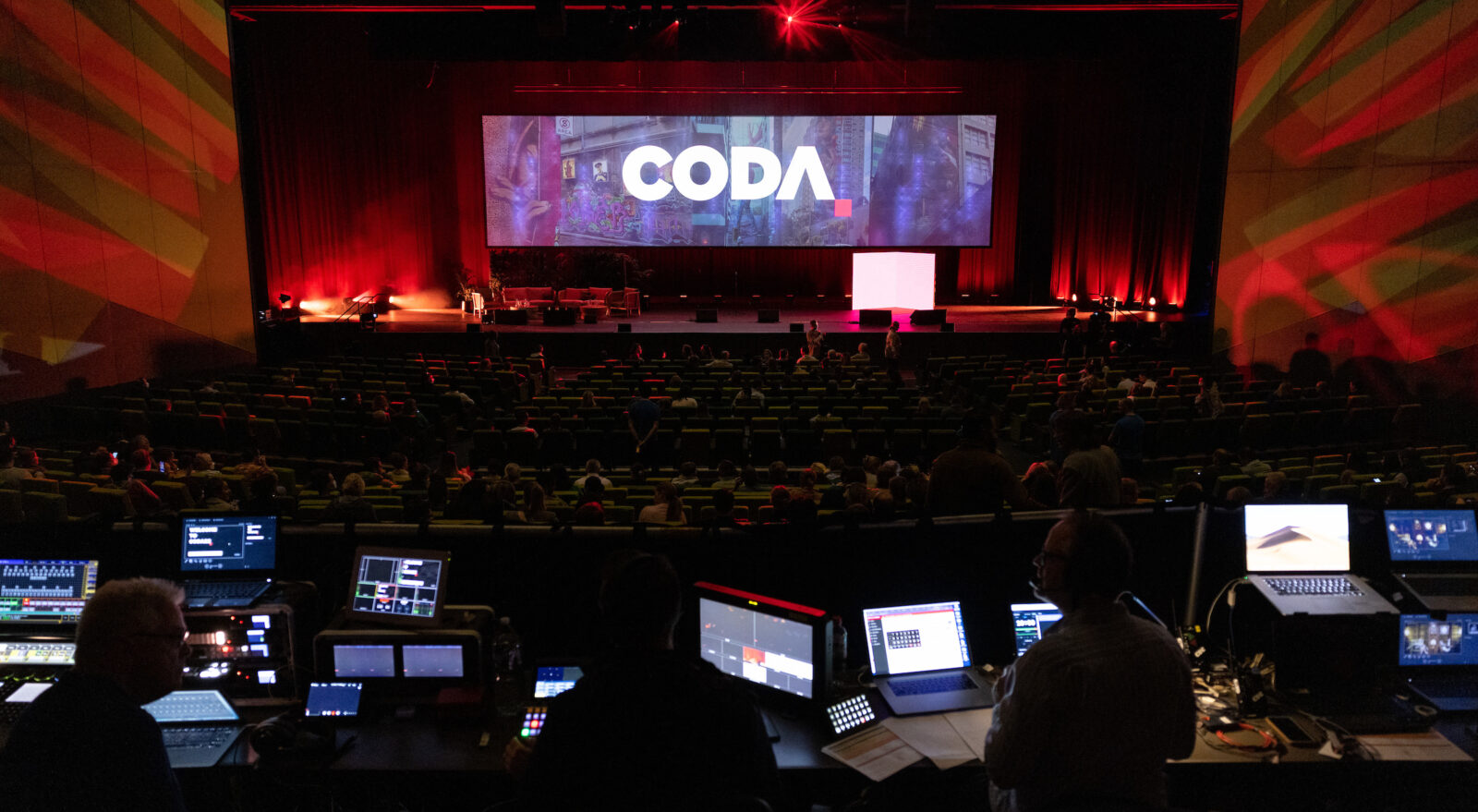This large, in-person event would be entirely sustainable and serve as a blueprint for other planners and organisations interested in hosting their own sustainable and carbon-neutral events in the future. But the focus wouldn’t be on education in the traditional sense, as co-founder Dr. Roger Harris explains: “We’ve been on a mission to try and constructively disrupt medical education, to make it more engaging, to tell stories, to give people good ways to learn, and to rebuild what we were doing with a focus more on the delegate experience and how we can engage them.”
Jesse Spurr, the program convenor, agrees, adding: “We’ve done everything possible to reduce the gap between the people on stage and the people in the community, and think of people in the audience as the community rather than just passive attendees.”
Human-centred approach
Coda reached out to attendees, asking for their insight and interests, and then integrated this feedback into the conference programming for a human-centred, attendee-led approach to planning. Of course, traditional, educational topics would be covered during Coda22, but so would big-picture issues like climate change. And since sustainability and the environment are driving factors in Coda’s decision-making strategies, it was important that the first event be a carbon-neutral one — Coda received certification through Climate Active, Australia’s collective effort to measure, reduce, and offset carbon emissions.
“In the events industry, we’re seeing more and more people going for a climate-neutral event,” says Tara Oakley of South Pole, which develops and implements emission reduction projects and strategies to turn climate action into long-term business opportunities for organisations. “The first step on your climate journey is understanding what your emissions are so you can compensate for them, and then try and decarbonise them during the next events you run.”
The concept sounds simple enough, and while sustainability has been at the forefront of events for some time now, a few important factors need to align for this goal to be achieved. Often, the destination plays a key role in an event’s sustainability — and success. “All throughout [the planning process], we were looking at supply chains and trying to reduce the carbon footprint at every step of the way — and Melbourne is a great place to do that,” explains Coda co-founder Dr. Oliver Flower, adding that they could utilise local event suppliers, food and materials, avoiding interstate freight and thereby reducing emissions. “It’s not just about an educational event but also galvanising people into action and changing behaviour.”
Local support chain
Working together with the Melbourne Convention Bureau (MCB), Coda could utilise local knowledge and connections within Melbourne’s events supply chain to help obtain their sustainable objectives. Coda focused on the local community to address registration scarcity and selected speakers not by profile, but by experts, choosing the best in each field.
MCB CEO Ms. Julia Swanson shared that Melbourne is the perfect inspirational springboard for business event planners to get really creative with their programs.
“We’re seeing more and more event planners ask us for ways to optimise their meeting formats,” said Ms. Swanson.
“MCB’s consistent ‘Team Melbourne’ approach to supporting the development of innovative event programs is resulting in new and exciting conferences and exhibitions turning away from ‘cookie cutter-type’ formats, which not only result in greater delegate satisfaction, but demonstrates why Melbourne is a global leader in hosting healthcare events such as Coda22.”
MCB regularly provide business event planners with tools to achieve successful, creative programs like Coda22, offering free assistance to bring programs to life; access to the best local talent; connection to engaging and influential speakers; and introductions to MCB Knowledge Partners in the medical, technology, engineering and entrepreneurial sectors.
“Melbourne’s sustainability credentials and initiatives speak for themselves, with Melbourne ranked the #1 Most Sustainable City in Australia in the GDS-Index,” said Ms. Swanson.
“We are really excited about the sustainable possibilities business events can deliver Melbourne, how more event planners are embracing those possibilities, and how Melbourne can enable that to happen.”
“The thought-process and conscious choices behind Coda’s event elements, and their achievements, were outstanding.”
Defining element
Another defining element was the venue, the Melbourne Convention and Exhibition Centre (MCEC), the first in the world to receive a 6-Star Green Star environmental rating by the Green Building Council of Australia. The convention centre is part of a larger movement, the Net Zero Carbon Events Pledge, joining forces with others in the global events and meeting industry to commit to achieving net-zero by 2050 — only MCEC plans to reach this goal by 2030. The venue also plans to divert 90 percent of waste from landfills by 2025 and be 100 percent powered by renewable electricity by 2028 — a few reasons why its tagline is “Melbourne’s home of unconventional events.”
Get in touch with MCB today to learn how the team can work collaboratively with you secure and deliver a successful event that drives tangible outcomes and long-lasting legacies. For more information visit www.melbournecb.com.au
By hosting Coda22 at MCEC, the two could align goals for the same end objective, aiding one another along the way. As a city, Melbourne also proved that it could deliver a sustainable value chain to business event organisers and eliminate the need for fossil-fuelled motorised vehicles, thanks to the public transport infrastructure and location of the conference district. Associations can also utilise the city’s leading research institutes, academics, and education programmes, valuable additions that can be incorporated into a conference in the form of knowledge sharing and innovation-driving discussions.
Following the success of Coda22 and its plan to disrupt the traditional medical conference format, the hope is that other associations will take notice and enhance engagement at educational events. By innovating conferencing for a medical audience and hosting a carbon-neutral event, Coda and MCB hope to encourage other cities, convention bureaus, and venues to follow their lead for a sustainable future.
